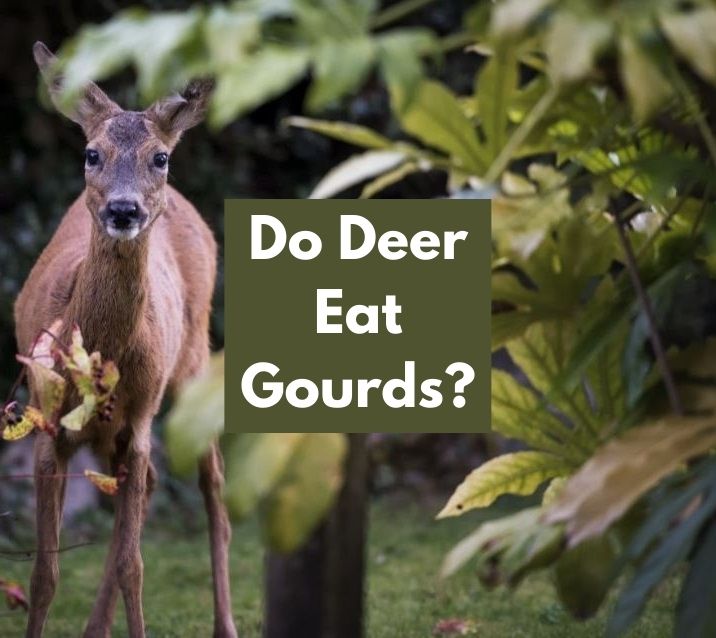There are a lot of myths out there about what deer do and do not eat. One common question is: do deer eat gourds?
Yes, deer will eat gourds. While gourds are not a major part of a deer’s diet, they will absolutely eat them if they’re hungry enough.
There’s a bit more to learn about deer eating gourds which we’ll cover in today’s guide. Read on for more info.
Why Do Deer Eat Gourds?
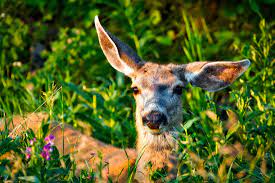
As we covered, deer will eat gourds when they’ve got the chance.
While they’re not big fans of the exterior, they love eating the flesh and seeds inside the gourds.
But why do they do this?
Well, for one, deer love the taste of gourds. Their sweet-savory and buttery taste are exactly what deer are looking for.
Additionally, deer will consume a wide variety of foods like gourds based on opportunity.
In fact, some people specifically choose to grow gourds for food plots to attract deer.
If you’re not convinced, leave some gourds out for deer to eat (or plant some), and wait to see what happens!
How Do I Keep Deer From Eating My Gourds?
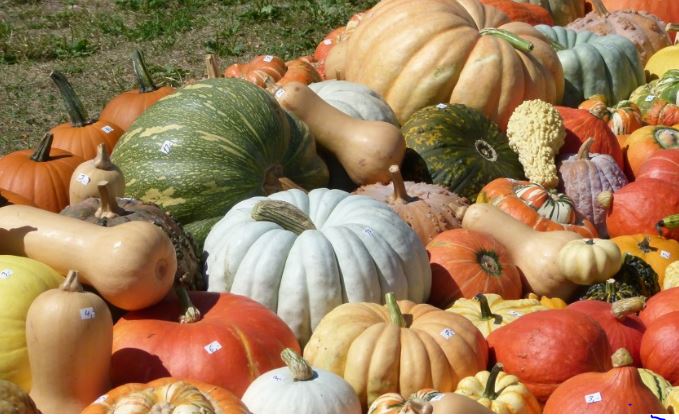
There are a few things to keep in mind when you’re protecting gourds from hungry deer: their habits, your scent, repellent options, and when you plant them.
Deer will eat nearly anything if they’re hungry enough, so your main goal is making your garden as least inviting to deer as possible.
Check out our guide on how to keep deer from eating plants where we cover 25 quick and easy tips for keeping hungry deer out of your garden.
Will My Gourds Grow Back After Deer Eat Them?
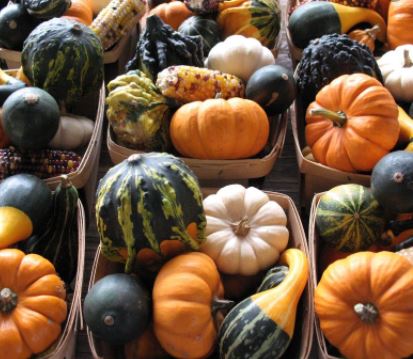
Unfortunately, gourds are not very resilient and rarely survive a deer attack.
You’ll need to replant your gourds and regrow them, and take some of the preventative measures outlined above to keep deer away from gourds for next time.
If deer leave the seeds behind after attacking your gourds, they may replant themselves or you can bury the seeds and try again next year.
Are Gourds Good For Deer?
Feeding deer gourds provides them with the following vitamins and minerals:
- Vitamin C
- Calcium
- Vitamin A
- Vitamin B6
- Magnesium
These vitamins and minerals provide deer with many benefits.
For example, vitamin C will help protect deer against scurvy and vitamin assists in deer immune system function.
Deer need calcium for bone, teeth, and antler growth and health as well as other bodily functions like milk production and metabolism.
Magnesium is great for antler growth, increasing body weight, and has immune system benefits for deer.
Fat-Soluble Vitamins For Deer
Vitamins A, D, E, K, and calcium are fat-soluble, so they can be stored in the deer’s fat and liver to be used later as needed.
This means that vitamin A content from deer eating gourds can be “stored up” for later use, which is highly beneficial.
Water-Soluble Vitamins For Deer
Vitamin C, B Vitamins, niacin, folic acid, and potassium are all water-soluble, which means they cannot be stored, so they must be replaced continually.
So a deer that eats gourds for the vitamin C content must continue to consume foods that contain these necessary vitamins to stay healthy.
How To Feed Deer Gourds
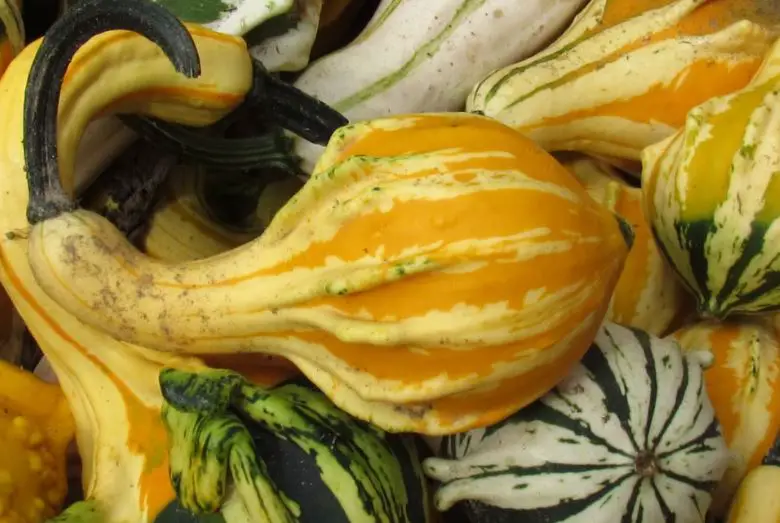
Most gardeners and veggie growers want to keep deer away from their gourds.
If you have extra gourds or are looking to see if you can feed gourds to deer, this next part is for you.
There are a few things to keep in mind when feeding deer gourds: the size of the portion, your scent, and how many deer you’re feeding.
Make sure to place the gourds on the ground where it’s visible and can be easily reached by deer.
If you’ve got a winter food plot with gourds growing in it, the deer will eat them right out of the ground.
If deer are not normally around your area in winter, don’t feed them leading up to winter as they will not migrate where and when they should.
This will lead to the deer relying on you as their food source and can result in starvation.
Should I Cut Up Gourds For Deer To Eat?
If possible, cube pieces into 1″ or 2″ chunks to make it easier for the deer to eat gourds.
Gourds are high in fiber which can be tough on deer to digest in large quantities, plus they don’t like to eat the rind.
Don’t Leave Your Scent On Deer Food
Deer have a keen sense of smell that allows them to smell human scent farther than bloodhounds can, and can smell up to six different scents at once.
Deer won’t eat food like gourds if they have a strong human scent on them, so you should take care to minimize your trace.
You can do this by rinsing the gourds and also washing your hands with antimicrobial soap.
Alternatively, you can put a few drops of apple cider vinegar on your hands when handling food you’ll be giving to the deer.
Another easy option is to use gloves when handling gourds for deer to eat.
Consider The Amount Of Deer You’re Feeding
If you have lots of deer in your area, think twice about putting out food continuously for them.
If you bring deer together at the same feeding site, it can increase their risk of contracting chronic wasting disease or other communicable diseases from each other.
Do Deer Eat Gourds? Wrapping Things Up
So, do deer eat gourds?
The answer is yes!
Deer will steer clear of the thick, rubbery exterior of gourds but will chow down on the flesh and seeds inside.
Although gourds aren’t a deer’s first choice, they’ll definitely eat them if they’re hungry enough.
Fortunately there are many methods you can use and combine to keep deer away from your precious gourds.
Try a few and see what works best for you.
Have any observations to add to the discussion? Be sure to let us know in the comments below.
Check our our other helpful wildlife guides while you’re here:
- Can deer eat orange peels?
- Do deer eat corn on the cob?
- Do deer eat tomatoes?
- Do deer eat cranberries?
- Do deer eat oats?
- Do deer eat squash?
- Do deer eat jalapeno plants?
- Do deer eat blackberries?
- Do deer eat corn?
- Do deer eat rice?
- Do deer eat sweet potatoes?
- Do deer eat carrots?
- Do deer eat strawberries?
- Do deer eat pineapple?
- Can deer eat lemons?
- Do deer eat cherries?

